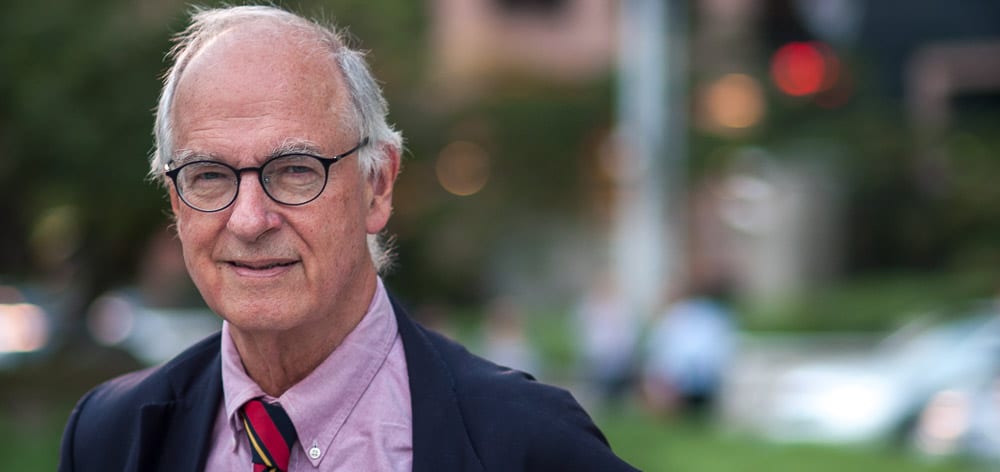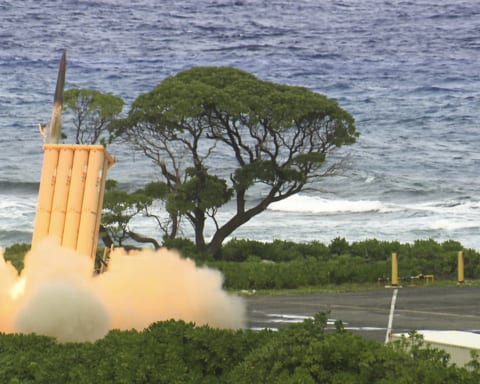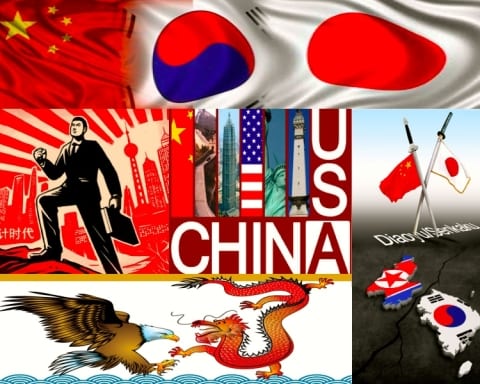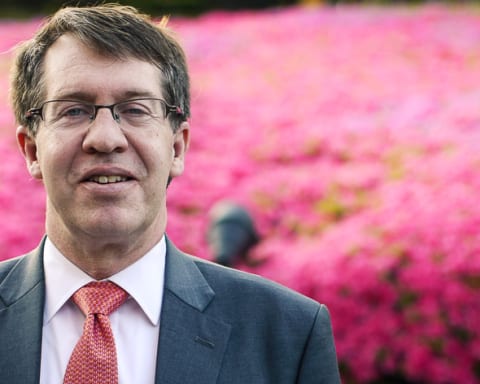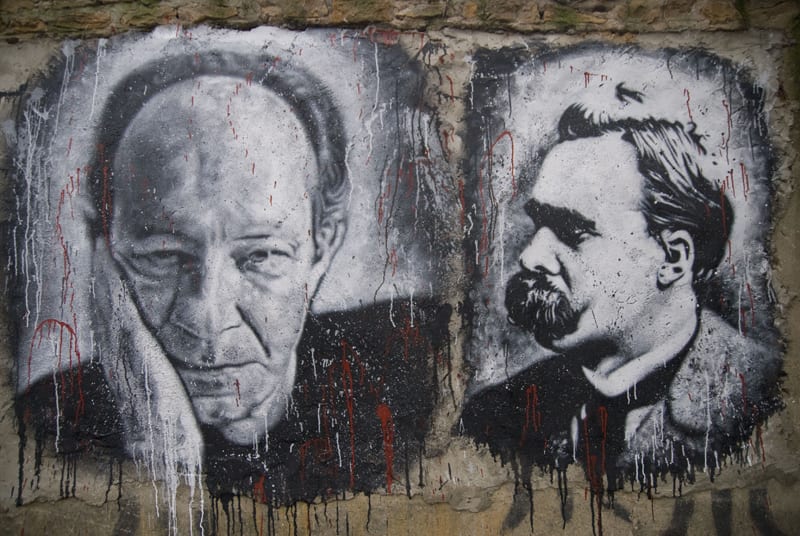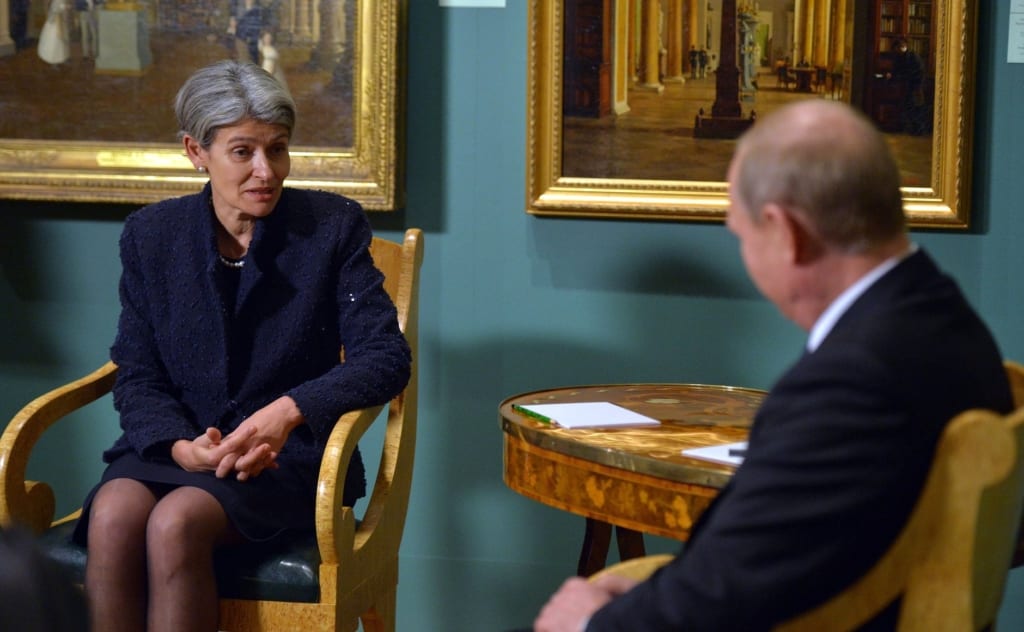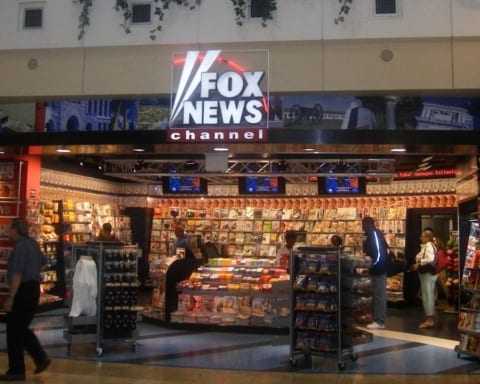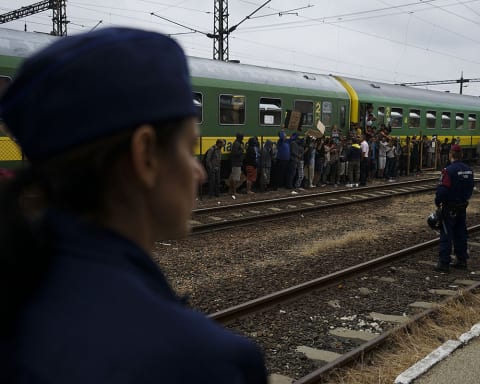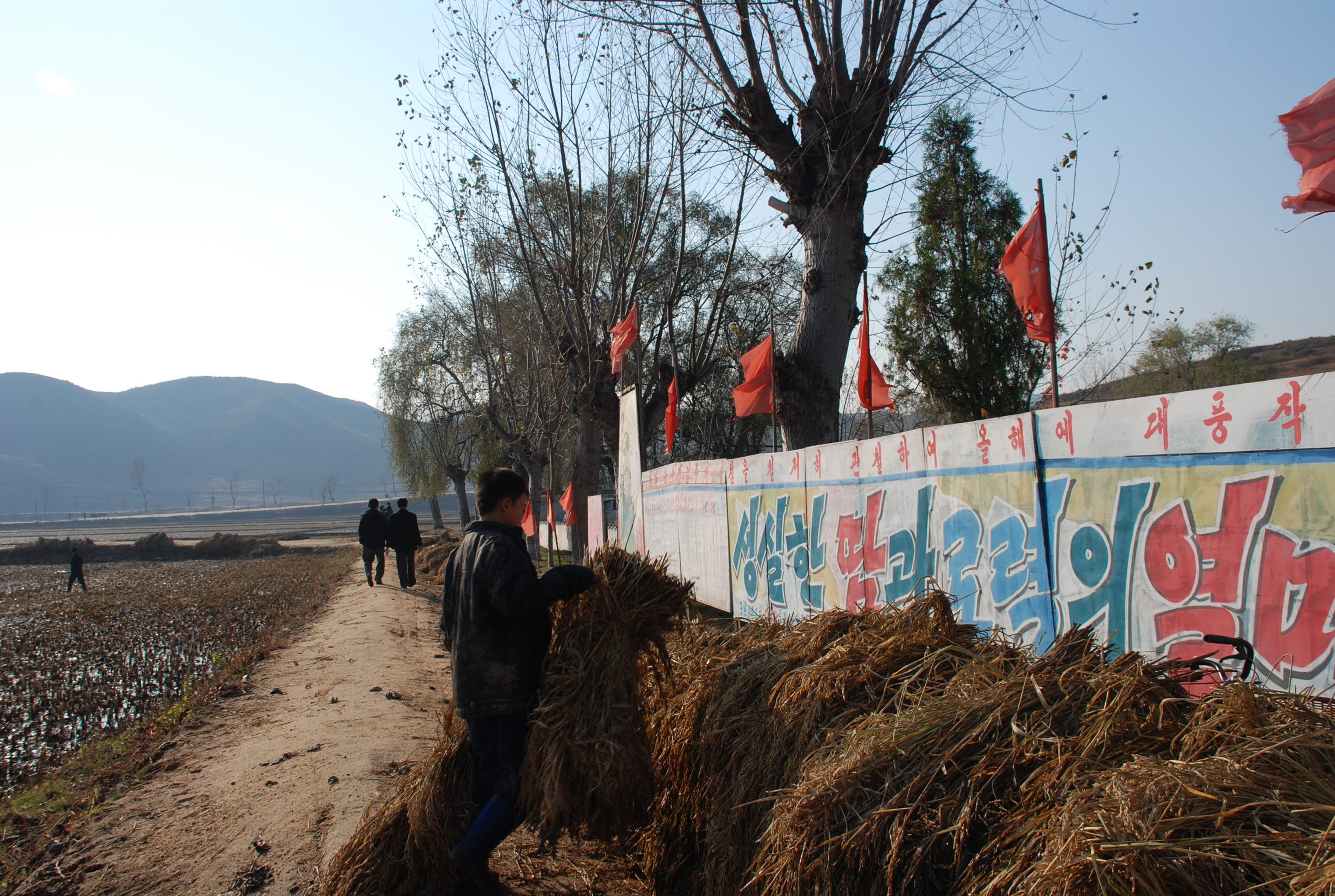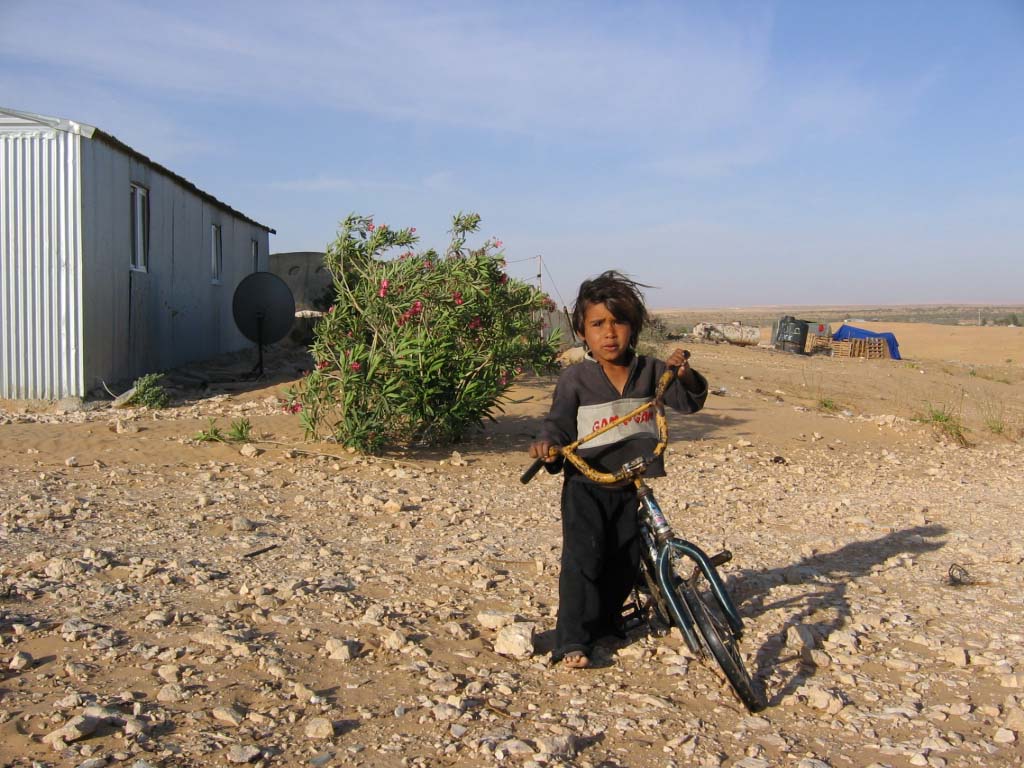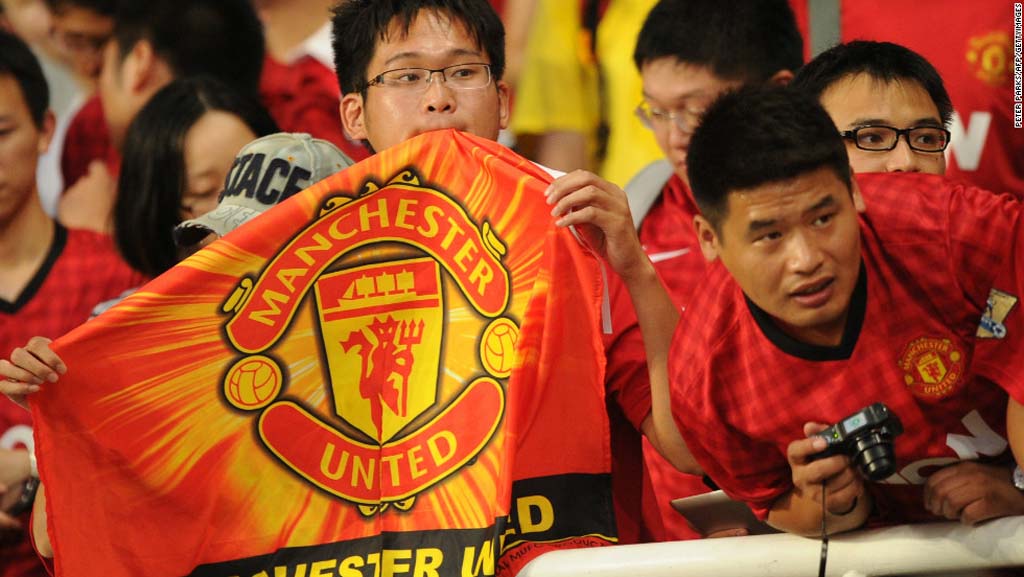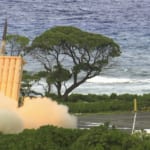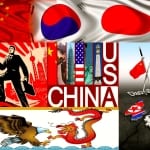In 2000, then President Kim Dae-Jung became the first Korean to receive a Nobel Prize, for his life’s work dedicated to democracy and, to quote the Nobel Committee: “peace and reconciliation with North Korea in particular.” The award was granted shortly after the first North-South Korean summit in June of the same year, and in recognition of the merits of the Sunshine Policy in general. Yet fifteen years later, Kim Dae-Jung’s legacy remains controversial: not only is the success of the policy debatable, but some have also criticized the costs he was willing to pay in the name of reconciliation.
An outspoken critic of Kim Dae-Jung’s approach to North Korea is journalist and author Donald Kirk, who published in 2010 a biography of the late president with a focus on his political career and the Sunshine Policy, entitled: Korea Betrayed: Kim Dae Jung and Sunshine. In this episode we spoke with him about Kim’s priorities when dealing with North Korea and his lifelong quest for the Nobel Peace Prize.
Donald Kirk is a veteran journalist and correspondent in the Asia-Pacific. He has reported from many of the conflicts and hotspots in the region since 1965 and covered the Vietnam, Gulf and Iraq wars. He has also extensively reported on Korean affairs, including the assassination of President Park Chung-hee in 1979, the Gwangju Uprising in 1980, the nuclear crisis of 1994 and the 2000 Inter-Korean Summit. He is the author of several publications, among them an unauthorized biography of Chung Ju-yung, the founder of Hyundai.
Donald Kirk is a graduate of Princeton University and the University of Chicago. He has received numerous awards, including the Overseas Press Club of America Award, the George Polk Award for foreign reporting and the Chicago Tribune’s Edward Scott Beck award. He was also a Ford fellow at Columbia University, a Fulbright Scholar in India during the sixties and in the Philippines during the nineties, and the recipient of a National Endowment for the Humanities grant at MIT among many others.
One theme of [Kim Dae-jung], which was particularly disquieting, was his quest for the Nobel Peace Prize. For years before he even had this Inter-Korean Summit, he was campaigning for the Nobel and after the Summit he revved up the campaign […] Korean embassies were deputized to work for the Nobel. The embassies in [Norway and Sweden] gave receptions, made contacts with Nobel people, had dinners, lunches, anything they could do to push [Kim Dae-jung] for the Nobel […] There was nothing that he would leave to chance.
The interview was recorded on October 7th in Seoul by Korea and the World and is reproduced on The Policy Wire with express permission. For more exciting interviews with experts on the Korean Peninsula be sure to check out their website.
Speaker: Donald Kirk, welcome to Korea and the World.
Kirk: Thank you, I’m glad to have the chance to meet you.
Speaker: So you have been reporting from Korea on enough for decades; why did you come to Korea in the first place?
Kirk: I first came to Korea as Far-East Correspondent for the Chicago Tribune. I was based in Tokyo with the Tribune, and went to Vietnam for them and other places. They also sent me to Korea, so that’s how I got involved with Korea. My first experience with Korea was during their Red Cross talks in the spring of 1972, the Red Cross talks were talks between North and South Korean Red Cross representatives. The idea was that they would try to solve all the problems that we are still talking about now. Notably, family reunions, exchange of mail, and trade, and aid, all those problems that we hear about now, they were talking about then. They still haven’t solved them and that was in 1972.
Speaker: You have decided to focus most recently on president Kim Dae-jung; why are you interested in this man?
Kirk: I got interested in him because I was covering Korea before and during his presidency. I was very much interested in the Sunshine Policy, family visits and so forth. I wrote a lot about the first inter-Korean summit in June of 2000, they had a huge pressroom in the Lotte Hotel where they talked about what was going on in Pyongyang. We had video from Pyongyang, we had images from Pyongyang, we had press releases from Pyongyang, summarizing what was going on during this summit. I got very much interested in Kim Dae-Jung during that time. By the way, I should also add, that during my first visit to Korea in 1972 I interviewed Kim Dae-jung, so I interviewed him several times over the years. I probably interviewed Kim Dae-jung at least half a dozen times; the first time in 1972 when he was a dissident living in his compound in Mapo.
Speaker: Before going any further, could you maybe tell us a little bit more abut Kim Dae-jung the man, before he became the president. So you met him in Mapo for the first time.
Kirk: He’s originally from an island down there in the southeastern corner of South Korea, in the Cheolla region, south Cheolla province. I interviewed him in his compound in Mapo, he was then very much a dissident, and was quite outspoken. I interviewed him before he was kidnapped, before he went to Japan where he was kidnapped and then I had interviewed him after he got back from Japan, after he’d been kidnapped, where he told me his story of his kidnapping and that type of thing. I interviewd him during the Gwangju revolt at his home then. He was finally arrested and jailed for what they claimed was his in fomenting the Gwangju revolt.
I interviewed him at his home before his arrest; there was a period there where actually it looked as if Korea would be fairly democratic. That was after the assassination of Park Chung-hee. In October 1979, an interim president, who previously had been Prime Minister became president, his name was Mr. Choi. He was not effective and the Gwangju revolt broke out in may 1980, so I interviewed DJ, and I always call him DJ, in the book incidentally. You can’t keep calling him Kim when there’s so many Kim’s around. He was a very interesting person to interview, as a dissident. I and a lot of other correspondents were extremely impressed by him.
Speaker: How did your perception of him change over time? How did that evolve?
Kirk: After the June 2000 Summit, I think he got rather disillusioned by his cozying up to North Korea, by what appeared to me to be concessions he was making a North Korea. One of the first concessions he made was in arranging the June 2000 Summit. He freed a lot of North Koreans who were held here in jail, 60 plus of them, who had been arrested for various offences, mostly spying and that type of thing. He freed them, and let them go back to North Korea, where they claimed they wanted to go. He never demanded, before or during or after the summit, that North Korea free more then 500 South Koreans who were held there, the vast majority of them fishermen, who intruded in the North Korean waters mostly by accident. They simply had never been released. He did not demand their release, he seemed to place a higher priority on reconciliation and on “sunshine”.
Meanwhile North Korea continued with an extremely dictatorial state and I didn’t hear DJ complaining about that. I asked him once when I interviewed him one final time when he was President, in the Blue House, I asked him why he didn’t raise this issue with North Korea. He said first they wanted to reconcile with North Korea, so they would be in a better position to get along with North Korea, and to bring North Korea to some type of humane terms. You know it occurred to me at the time and I thought about it ever since, That’s fine, sure, but what does that do for the tens of thousands of people held in prison in North Korea, Do they want to wait? How can they wait for reconciliation? They need someone in a very powerful position, calling for their release, calling for humanitarian policy. DJ never did that, he never did that, and instead he blamed the US for messing up the Sunshine Policy, for ruining his Sunshine Policy.
Although President Bush was actually conciliatory in the end. After President Bush was inaugurated, George W. Bush, the second President Bush. After he was inaugurated DJ rushed to Washington, more or less rushed to see him at the White House. It was then that President Bush gave DJ kind of a cold shoulder, he said he was really skeptical, which was the word he used, about Kim Jung-il and he indicated doubts about North Korea, which was sort of a rejection to DJ’s policies and so forth.
That meeting between DJ and President Bush shortly after President Bush’s inauguration was more or less a disaster. There was a great effort after that to get along. I was here when President Bush came here and he and DJ stood side-by-side at a press conference in the Blue House and were very friendly and palsy. Then DJ went up to Dorasan Station, which is the new station, the last station on the line to North Korea, and again they issued very nice statements and so forth. If you go up to Dorasan Station, you’ll even see inscribed George W. Bush’s words on a tablet there. So it seems that they are getting along well, but when I met DJ, he was always very critical of Bush, especially after DJ was no longer president. I met DJ in his home in Mapo, again sometime after the end of his presidency. He was very upset about US policies, about the turn of US policies, and he blamed president Bush for everything.
Speaker: Professor Chung-In Moon, whom we interviewed recently, actually said that it is a bit unfair to criticize the Sunshine Policy for failing since it never had the chance to actually take place properly. It only lasted a few months before exogenous problems such as the United States and North Korean tensions put an early end to it. Would you agree?
Kirk: Not quite. First of all, I would not say it only lasted a few months. It lasted during DJ’s presidency, and into the presidency of DJ’s successor, Roh Moo-Hyun, who essentially had the same policy. So it lasted quite a while and a key element in this policy was that South Korea every year shipped a total of, was it ten million tons of rice and fertilizer to North Korea free of charge, basically free of charge, there may have been some long-term interests. I can’t remember which it is, it was not really a major element in the deal anyways. South Korea was shipping all this aid to North Korea, but as soon as Lee Myung-bak became president, he cut it all of. He succeeded Roh Moo-Hyun and he stopped that. But that was one reason why the Sunshine Policy endured because North Korea was getting these tremendous shipments from South Korea, North Korea had a lot to be thankful for. At the same time, DJ wouldn’t take any chances on messing up the Sunshine Policy, and no matter what happened there was a shootout in the West Sea, in 1999, and another shootout in 2002, in which a number of sailors were killed on both sides. More North Koreans were killed in the first one, all it had to do with North Korean intrusions over what’s called the Northern Limit Line, the line below which North Korean vessels, most notably fishing vessels are banned.
So there were these incidents and DJ really didn’t make strong statements, he simply wanted to cover them up. There was all sorts of tremendous incident, when a North Korean mini-submarine landed on the east coast, and half a dozen of these guys all committed suicide inside the submarine. Again this was an incident, it was a headline grabbing incident, but DJ didn’t want to make too much of a fuss about it. As we also know, during the incident involving the two thirteen year old school girls who were run over by a 48-ton US armored vehicle north of Seoul, north of Uijeongbu. They had demonstrations on the street out here going on for months. I was at many of those demonstrations and I was at the trial of the two US sergeants who eventually acquitted by a military court. The court said that these guys couldn’t see the girls, they were had their backs to their vehicle, they had their gizmos in their ear, they were listening to music, and so forth. They eventually acquitted these guys, and then the demonstrations got even more serious. They got so serious that actually they’re blamed for the defeat of the conservative Lee Hoi-chang in his campaign for president, and the victory of the Roh Moo-hyun, because the conservatives looked really bad.
So DJ when visiting US senators called upon them and said “What can you do about this?” He tried to blame the United States; in effect he basically said “Why can’t you do something about your soldiers?” and that sort of thing, and why can’t you do something about discipline for the troops, etc. So DJ really blamed in effect, not loudly as he didn’t make a speech, but he indicated and implied that maybe the US should reconsider what it was doing, maybe they were at fault, my people are very angry, etc. He played a very political role, which did not ingratiate him to me or to quite a few others.
I think DJ was the serious opportunist. Also DJ over the years claimed that there were several attempts to assassinate him, the first being a motor vehicle accident during a political campaign in Cheolla when he was rushing back to Seoul in a vehicle. He had claimed that president Park Chung-hee, President at the time tried to kill him. This claim is basically nonsense; the car from everything that we’ve heard was speeding, as cars tend to do. They had Kim Dae-jung in the car and he had to get to Seoul, and his driver was going full tilt, a couple of taxi drivers were killed in the accident, his car rammed into the back of a truck. It was not an assassination attempt, we can forget about that. After he was kidnapped from the hotel room in Tokyo, and nobody could deny that he was kidnapped. That was one of the incredible incidents; after he was kidnapped he was placed on a boat to be taken back to South Korea. I certainly could not blame him, if he was terrified and so forth. He claimed, credit to the US with sending a plane over that boat and that this was why he wasn’t thrown overboard. No, there was no American plane, what he heard was the sound of the engines of the boat. There was no sign of a plane, the Americans did not attempt to rescue DJ, they didn’t know where he was, and they weren’t in a position to send a plane to buzz the boat. So there was no plane, on the other hand, the American ambassador at the time, Phillip Habib made a strong protest directly to Park Chung-hee. Donald Gregg who later became Ambassador here was head of the CIA here and he made a strong case, that DJ had to survive this kidnap attempt so there was all kinds of American support, but there just was no plane. That was just a story that DJ concocted, and giving him the benefit of the doubt, the sound of the engine may have fooled him.
Speaker: So in your book you mentioned that despite being quiet critical of certain parties, Kim actually had little to say about human rights, about mismanagement of the North’s economy or about the 1.1 million North Koreans under arms. That’s from your book. Was the silence on those issues a precondition to discuss and have relations with North Korea or was it just he generally did not care about those issues?
Kirk: Well I think he may not have cared as much as he should have about those issues but I think he was sure that if made a fuss about that, then there could be no Sunshine Policy of reconciliation. A couple of factors about DJ’s background, he was from South Cheolla province; he never was in the Korean War, he never experienced the tragedy of the War. He didn’t have the feeling of empathy with millions of South Koreans to whom the North Koreans were a daily threat during the war and looked back with horror and sadness on the tragedy that occurred, so he didn’t have that feeling about North Korea. At the same time, he didn’t want to jeopardize Sunshine Policy. He had a great idea that perhaps there could be reconciliation in the form of a confederation of North and South Korea. North Korea could have its system, South Korea could have its system, and there could be a confederation. This was basically just a cockamamie theme, a cockamamie idea. Anybody who knows North Korea knows that there cannot be a confederation between North and South Korea, under which there would really be equal. What would you do with the armed forces? What would you do with travel back and forth? What would you do with commerce? What would you do with letters, normal communication, etc.? That was really a ridiculous idea.
One theme of DJ, which was particularly disquieting, was his quest for the Nobel Prize, the Nobel Peace Prize. For years before he had this inter-Korean summit, he was campaigning for the Nobel, and after the summit he revved up the campaign, he pulled out all the stops. Korean embassies were deputized to work for the Nobel, the embassies in Norway in Oslo and Sweden, gave receptions to make contacts with Nobel people, had dinners, lunches, anything they could do to push the DJ for the Nobel. They tried to be fairly subtle and careful about it, they just exchanged information on their leader. There was nothing that he would leave to chance. I’m told he even approached the American Friends Service Committee in Tokyo, otherwise know as Quakers. There was nobody, no stone unturned, to get him the Nobel. The National Intelligence Service, the top levels of the NIS, then called the Korean Central Intelligence Agency, the top levels of the KCIA, had to forget about a lot of their mission of finding out what was really going on in North Korea. They had to do whatever they could to get the Nobel for DJ. I actually wrote a book, co-authored it with a former NIS agent called, “Kim Dae-jung and the Quest for the Nobel”. This book was about to be published, it was accepted, edited about to go to press and then the publisher got cold feet and halted publication. I think under pressure from some of DJ’s people.
Speaker: So to understand this “Quest” for the Nobel Prize, the moment you describe as important is when he actually went to the United States in exile in the eighties, could you tell us more about that?
Kirk: While he was in exile in the eighties, he was treated as a hero of course. He had a fellowship in Harvard arranged by Edwin Reischauer, who had been US Ambassador to Japan and just retired as a professor at Harvard. He [DJ] had a great fellowship at Harvard but he didn’t spend a lot of time in Cambridge actually, he was based in Northern Virginia, where he continued to campaign for the Nobel. I interviewed him during that period in Springfield, Virginia where he was living. I didn’t find him in Harvard although he was supposedly at Harvard. He did come out during that in Harvard with a great long paper abut the Korean economy which to be honest with you was basically nuts. It was basically nonsense. Although he mentioned having written it in subsequent years he didn’t brag about it and he didn’t going back to what it was saying. He was totally of critical of Park Chung-hee and totally critical of the Chaebol and so forth. Almost everyone I know have quite mixed feelings about Park, and people do say that he was a dictator and that there were many bad things done during his 18 and a half years as President. However he is also held in high regard for his economic policies, for getting the Chaebol off the ground, and up and running competing on an international scale. DJ has nothing good to say about Park and his economic polices; he is totally critical of how the Chaebol operated.
Speaker: What did the Nobel Prize mean to him? Why did he want it so bad?
Kirk: He wanted it as a just the pinnacle or crowning moment of his career, his coronation as it were. He went to Oslo and gave a Nobel Prize speech, and he was venerated as this great statesmen, on the same level as say, Nelson Mandela. Many people to this day regard him as the same level as Nelson Mandela or Walesa of Poland who were tremendous peacemakers or who had these great reputations as heroic leaders. To some degree DJ’s reputation was deserved, I don’t wanna be totally critical, but he was absolutely crazy about getting the Nobel Peace Prize, it was just the ultimate accolade. No other Korean has ever won any kind of a Nobel Prize, this was a great moment in DJ’s life and in his view for modern Korea, although I’m not sure a lot of Koreans cared all that much. While he was in Oslo, talking and being interviewed, and photographed, and so forth, there was a lot of criticism in the Korean media about his trip. He went there while they were suffering from economic problems and other usual problems. The Korean media, particularly the conservative media never liked him and had quite a few unfavorable comments to make about him.
Speaker: He was campaigning for a quite a while, and was actually rejected for the Nobel Prize a few times, how did he take those defeats?
Kirk: It was more then a few times, I think it was thirteen times. There was somebody who said that he was asked to write a letter on DJ’s behalf thirteen times. Anyways thirteen is the number that comes to mind. He viewed the defeat as simply to keep going and try harder next time. He never accepted defeat in his quest for the Nobel. He simply ordered his aides, and when he was President ordered the KCIA, to go after the Nobel more intensely then ever. It was just the crowning moment of his lifetime.
Speaker: So would you say the Sunshine Policy and his political agenda overall was focused on obtaining that Nobel Prize?
Kirk: A lot of the Sunshine Policy was focused on attaining that Nobel Prize. Now one other thing thats very important to mention was related to how he wanted to arrange his visit with Kim Jung-il at the first inter-Korean summit. There was a tremendous payoff involved, at least five hundred million was sent to North Korea through Hyundai-Asan, the company that had dealings with North Korea. The company that was responsible for the Kaesong Industrial Complex and for the Mount Kumgang. Hyundai somehow got the money into North Korea at least five hundred million, and some people think it was much more. There was ultimately an investigation involved and finally the chairman of Hyundai, one of the sons of the founder of the Hyundai empire, committed suicide. He jumped from his office in the headquarters, what was then the Hyundai headquarters, not far from here in Central Seoul. There was the usual speculation: Was he pushed? Was he murdered? Or did he really commit suicide? I tend to think he committed suicide. I visited the site of the suicide the next day and I saw these bushes where he landed which were crushed. Then I went to the funeral and presented condolences, along with thousands of others to his brothers who were standing in line in front of the casket wearing the hemp hats. They wore these server looking hemp hats in mourning, and I bowed before them an so forth. I placed a white chrysanthemum on the altar, as did everybody else who walked by. Just because I had this experience does not mean that he was not murdered, but my feeling, which could be wrong, is that he committed suicide. As the investigation got closer to him, as his whole role in transferring the money was revealed, it was very embarrassing.
Speaker: Professor Chung-In Moon who we mentioned previously actually when asked a similar a question said that on sending money to North Korea was a Presidential decision and that there was nothing wrong about it. It was just in order to get concessions and that in the case of the Hyundai sending money as well, it might just be because there is no legal way of sending money from South Korea to the entity today that is recognized as existing North Korea.
Kirk: Well Professor Moon may think there’s nothing wrong about it and other people would disagree. It seems like quite a large payoff just for a summit. I’m not saying it wasn’t justified in the interest of inter-Korean reconciliation, but it wasn’t publicized, it became revealed later, there was a huge investigation and a lot of people thought there was a lot wrong with it. The summit was basically bought at quite a high price, as I said, some people think the price was considerably higher then 500 hundred million dollars. So I would say that there was a lot wrong with it, with having to send 500 Million dollars to North Korea.
Speaker: Where did the Sunshine Policy actually come from? Why such an engagement with North Korea? How did that come about?
Kirk: I think that there’s always been a yearning for some kind of reconciliation with North Korea. How do you do it? DJs predecessors had such terrible relations with North Korea, and I think many people thought there’s got to be a way to reconcile with North Korea. So they attempted and he came up with this great scheme, which was quite captivating in a way. It just didn’t really work, because it was based on a huge payoff to North Korea. It didn’t recognize North Korea’s criminal problems, it didn’t recognize the human rights issue, it didn’t recognize the need for North Korea to scale down its nuclear or missile program or to reduce the size of his armed forces. So basically the Sunshine Policy didn’t work, but it came about from the desire of many Koreans, not just people from the southeastern or southwestern Cheolla provinces, but many Koreans to somehow see “Why can’t we get along with these people?”.
Speaker: As you seem to say, it was trying to offer the dream to different people, but why was it so successful that he was actually able to get the Nobel Prize? Was it just because of good campaigning, or did it actually play on some type of emotion internationally as well?
Kirk: I think it definitely played on an emotion internationally. Of course he won the Nobel Prize after the June 2000 Summit. That had a lot to do with finally winning the Nobel Peace Prize although he’d been trying to get it for years. I do think that it had a lot to do with this wave of emotion internationally. I think that the Nobel Prize people in Oslo are quite, shall we say, liberal, in their outlook and can be taken in by people like Kim Dae-jung. I think that was the problem too. Also in South Korea, there was a wave of feeling of amazement that maybe we’re really going to reconcile with North Korea. Very soon disillusionment set in as well as disappointment. But there was a feeling that maybe the South really could reconcile with the North.
Speaker: You mentioned the 2000 Summit numerous times, did it to lead anything or was it just a very nice show? Fifteen years later can we actually say it had an impact on North-South relations?
Kirk: Well it did have a certain impact, for one thing one of the agreements in the summit was for family visits, for reunions of families that had been divided by the Korean War. There have been a number of reunions. Of course North Korea stops them whenever they get angry or whenever there’s some terrible problem between North and South Korea. There’s supposed to be a reunion later this month, that’s an outgrowth of the June 2000 Summit. That seems to be the most substantial result of the Summit, but that’s very limited. The number of people have actually united in reunions is less then 20,000. There’s hundreds of thousands of families that are divided. They say ten million families were divided, hundreds of thousands of people that are still left who would like to receive their old long lost relatives again.
Speaker: You mentioned that in your book that to write about Kim’s legacy has been “to hold up an illusion of harmony and unity”. Why do you hold such a crushing verdict on it? What elements specifically will you point out to say that in the end there was nothing?
Kirk: The major point is that in the end, there really was nothing. In the end North Korea remains as hostile as ever to the South. Not only are they not they not getting the massive infusion of funds, but they’re not getting the aid during the decade of the Sunshine Policy and they’re not getting the benefits that they expected during that decade of sunshine. So since that they’re not getting it, they’ve been rather harsh in their judgments of his successors. The Sunshine Policy basically broke down in 2002, that was when North Korea was revealed to have been conducting a nuclear program using highly enriched uranium. They had agreed in 1994 during the Geneva talks, under the Geneva Framework Agreement, to shutdown their 5 megawatt reactor and they also had agreed to stop any kind of nuclear program. Then it was revealed in 2002, that they had a separate program using highly enriched uranium.
This revelation came about during a meeting US-North Korea negotiator James Kelly and his entourage when they went to Pyongyang and spoke to Kang Sok-ju who I think was the then foreign minister although now he has a higher position. They showed him documents and diagrams and maps and said we know you have this highly enriched uranium, and he said and even admitted and said, “oh you know a lot” or something like that. Afterwards North Korea never admitted any such thing, that they never said they had HEU. Now of course they say they do have HEU, it’s been well known that North Korea now has Highly Enriched Uranium, and it’s been well known to have been getting advice and assistance from Iran in this program. North Korea in turn has shipped missiles, Rodong and other missiles such as SCUD missiles to Iran. There is a tremendous relationship between North Korea and Iran on nukes and missiles.
So after the revelation that North Korea has this Highly Enriched Uranium in 2002, the Geneva framework completely broke down. By 2003, there no more shipments in heavy oil from the US to North Korea, which the US has been shipping every year, and there were no more inspectors at the International Atomic Energy Agency looking at the North Korean reactor. So the whole thing, the whole program was shot, it went down the tube so to speak in 2002. Sunshine by that time was really revealed to have been a failure.
Speaker: If the summit was the “ultimate expression”, to quote you of Kim’s desire for the Nobel Prize, and if the Sunshine Policy overall was not as successful as it should have or could have been, do you believe that had there been another man, had Kim Dae-jung not been so interested in getting a Nobel Prize, would there have been such a summit between North and South Korea?
Kirk: There probably wouldn’t have been a summit; Kim Dae-Jung won election as president due to an interesting set of circumstances. The conservative, Lee Hoi-chang waged a strong campaign, but another conservative, the governor of Gyeonggi province waged third-party campaign and he was a conservative also. That took away votes from Lee Hoi-chang, so therefore DJ, to everyone’s shock and amazement won the election by a rather narrow margin. Had Lee Hoi-chang been elected president, I think there would be very little if any possibility that there would have been a summit and I think there might have been a more realistic policy towards North Korea. I should point out that the sunshine policy broke down totally in 2002 when DJ was still president. North Korea did that even though Kim Dae-jung was President, while his successor Roh Moo-hyun was president, they conducted another nuclear test in 2006. Sunshine Policy broke down in 2002, they didn’t conduct a nuclear test then, but the policy broke down. In 2006, while Roh Moo-Hyun was president they did their first nuclear test. Interestingly enough, Roh Moo-hyun also went to North Korea for a summit, just before the 2007 election although he was not running again. By the way if you’re wondering why DJ only served 5 years, and Roh Moo-hyun had only served 5 years, under the Korean Constitution of 1987, you could only serve one five-year term. You’re limited to a single five-year term.
Speaker: The title of your latest book in English is “Korea Betrayed” Was Kim Dae-jung a leader who was self interested if not morbidly corrupt from the beginning, and only used policies such as the Sunshine Policy as a way to achieve his goal, in this case the Nobel Prize, or was it rather someone who had fought most of his life, and actually was a disappointment at the most important moment?
Kirk: I wouldn’t condemn DJ quite as harshly, but I would say that it was definitely a political opportunist, and a very brilliant man politically. He was very skillful at organizing followers in maintaining a following. He was said to be very sort of almost dictatorial in terms of how he treated his cabinet members during five-year presidency and he kept on rotating people in and out of cabinet positions. I believe he had about a 150 ministers, for about the most 20 positions. No minister lasted for more then a year or two; he would give the job to somebody else. Just for political reasons, for reasons of his own, relationships and you know whatever was going on there. So he was very a much political opportunist, a political animal. I wouldn’t condemn him, I wouldn’t really say he was a bad man, but I would say he was a political opportunist of the first order. I think he fooled a lot of people, especially American intellectuals and academics into thinking he was a lot greater then he was.
Speaker: Donald Kirk, thank you very much for your time!
Kirk: You’re welcome!
